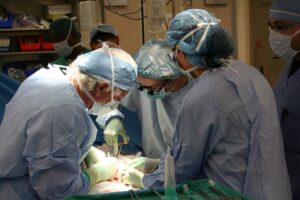
A recent report by the Australian Commission on Safety and Quality in Health Care reveals a significant and growing disparity in colonoscopy rates across Australia, largely influenced by geographic location and socioeconomic status. The report highlights that while Australians undergo approximately 1 million colonoscopies annually, access to this crucial procedure is not evenly distributed.
Colonoscopy remains a vital tool for preventing and detecting bowel cancer, recommended following a positive bowel cancer screening test or the emergence of key symptoms. However, the new findings suggest that some individuals may be receiving repeat colonoscopies prematurely, while others are missing out entirely. This discrepancy is particularly pronounced in rural and economically disadvantaged areas.
Key Findings and Current Trends
The Atlas Focus Report: Colonoscopy examines Medicare Benefits Scheme (MBS)-subsidised rates of colonoscopy and repeat procedures conducted before the recommended three-year interval. The report, launched at the World Congress of Gastroenterology and Australian Gastroenterology Week 2025 in Melbourne, indicates a national decrease of 8% in repeat colonoscopies within the past decade, with the most significant declines occurring in remote areas (26%) and socioeconomically disadvantaged regions (17%).
The disparity in overall colonoscopy rates is stark, with rates in major cities being four times higher than those in remote areas (2,550 compared to 633 per 100,000 people).
Conjoint Professor Anne Duggan, CEO of the Commission and a gastroenterologist, emphasized the importance of equitable access to colonoscopy services. “The Atlas Focus Report highlights a widening gap in colonoscopy rates. People living in cities and more affluent areas are having more MBS-subsidised colonoscopies than those in both rural and disadvantaged areas,” she stated.
Updated Clinical Guidance and Recommendations
In response to these findings, the Commission has updated the Colonoscopy Clinical Care Standard, mandatory for health services, to ensure procedures are conducted safely and effectively. The updated guidelines stress the importance of following established protocols to determine who requires a colonoscopy and when.
Dr. Phoebe Holdenson Kimura, Medical Advisor for the Commission, noted the need for improved patient education. “We know that bowel cancer screening rates are lower in remote areas. The same trend is reflected in our colonoscopy data, showing wide disparity between remote and city regions,” she explained.
“To reduce your risk, do the bowel cancer screening test if you are 45 to 74 years, and have a colonoscopy if the test is positive,” advised Dr. Kimura.
Challenges and Solutions for Rural and Disadvantaged Areas
Professor Ben Devereaux, a gastroenterologist at Royal Brisbane and Women’s Hospital, highlighted the challenges faced by individuals in rural areas and those with socioeconomic disadvantages. “When colonoscopy services are limited, such as in rural areas, it’s even more important that we provide services to those with greatest need,” he remarked.
Devereaux also stressed the importance of patient education and communication. “As health practitioners, we need to educate people about symptoms, while emphasising these don’t always mean bowel cancer. GPs have a crucial role in referring patients for colonoscopy,” he said.
“Talk with a trusted healthcare provider about symptoms if you have a change in bowel habits. Also request your colonoscopy report to know if you need a repeat in the future,” advised Professor Devereaux.
Implications and Future Directions
The growing disparity in colonoscopy access underscores the need for targeted interventions to ensure equitable healthcare across Australia. The updated clinical standards and the emphasis on education and communication are steps in the right direction, but more needs to be done to bridge the gap, especially in underserved areas.
Going forward, healthcare policymakers and providers must work collaboratively to address these disparities, ensuring that all Australians have timely access to colonoscopy services, irrespective of their location or socioeconomic status. This will not only improve early detection and prevention of bowel cancer but also enhance overall public health outcomes.







